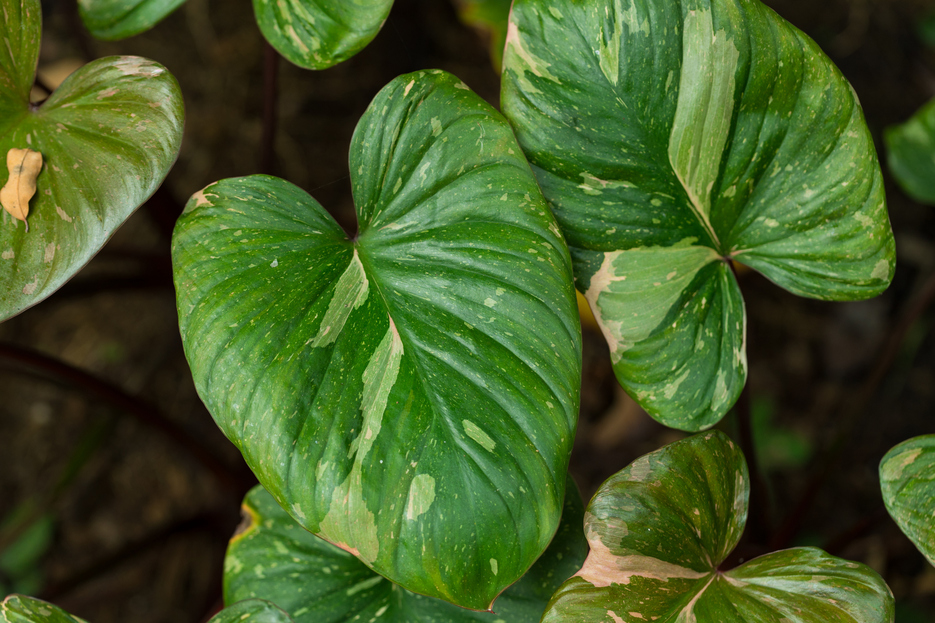
Homalomena is an elegant tropical houseplant admired for its glossy, heart-shaped leaves and lush, compact growth. Known for being easygoing and adaptable, this plant is perfect for both beginners and experienced plant lovers alike. Its smooth, vibrant foliage ranges from deep emerald to patterned varieties, offering a fresh burst of greenery to bright living rooms, cozy bedrooms, and well-lit offices. With the right care, Homalomena becomes a reliable, long-lived companion in any indoor space.
Homalomena thrives in bright, indirect light, though it tolerates medium light levels exceptionally well. An east-facing window is ideal, but it also grows happily a few feet away from brighter windows with filtered sun. Avoid direct sunlight, which can scorch the delicate leaves and cause fading.
In lower-light environments, the plant may grow more slowly or stretch toward the light, but it typically remains healthy. If your space is especially dim, a gentle grow light can supplement natural lighting during the day.
This tropical plant prefers evenly moist soil, but it does not like sitting in water. Allow the top inch of soil to dry before watering again, then water thoroughly until excess drains out of the pot. Always empty the saucer to prevent root rot.
Underwatering may cause dry, brown edges, while overwatering can lead to yellowing leaves or a mushy base. Consistency is key - Homalomena appreciates a stable routine. In winter, reduce watering slightly as growth slows down.
Homalomena loves medium to high humidity, ideally around 50–60%. It thrives near humidifiers, grouped with other plants, or placed on a pebble tray. Although it tolerates average indoor humidity, higher moisture levels help maintain glossy leaf surfaces and prevent crispy edges.
This plant grows best in temperatures between 65–80°F (18–27°C). Keep it away from cold drafts, vents, and sudden temperature changes, which can stress the plant and cause leaf damage.
Use a light, well-aerated potting mix that retains moisture without becoming compact or waterlogged. A mix of indoor potting soil with added perlite and coco coir works beautifully. Homalomena enjoys slightly snug pots, but repotting every 1–2 years helps refresh nutrients and support healthy root growth.
Spring is the best time to repot. Choose a pot only one size larger with good drainage holes.
Feed your Homalomena every 4–6 weeks during the growing season (spring and summer) using a balanced liquid fertilizer diluted to half strength. Too much fertilizer can scorch delicate roots or cause leaf tip burn, so keep feedings gentle. Suspend fertilizing during autumn and winter when growth naturally slows.
Homalomena has a naturally compact growth habit and rarely needs shaping. Remove yellow or damaged leaves as needed by cutting them close to the base with clean scissors. Regularly cleaning the leaves with a damp cloth keeps them shiny and improves light absorption.
If the plant begins to stretch or lean, rotate the pot every week or two to promote even growth.
The best way to propagate Homalomena is through division. When repotting, gently separate a section of your plant with its own roots and pot it into fresh soil. Water lightly until the new division stabilizes. Stem cutting propagation is usually not successful with this plant, so division offers the best results.
Homalomena is toxic to pets if ingested, it contains calcium oxalate crystals that can irritate the mouth and digestive system. Keep the plant out of reach of cats, dogs, and small children.